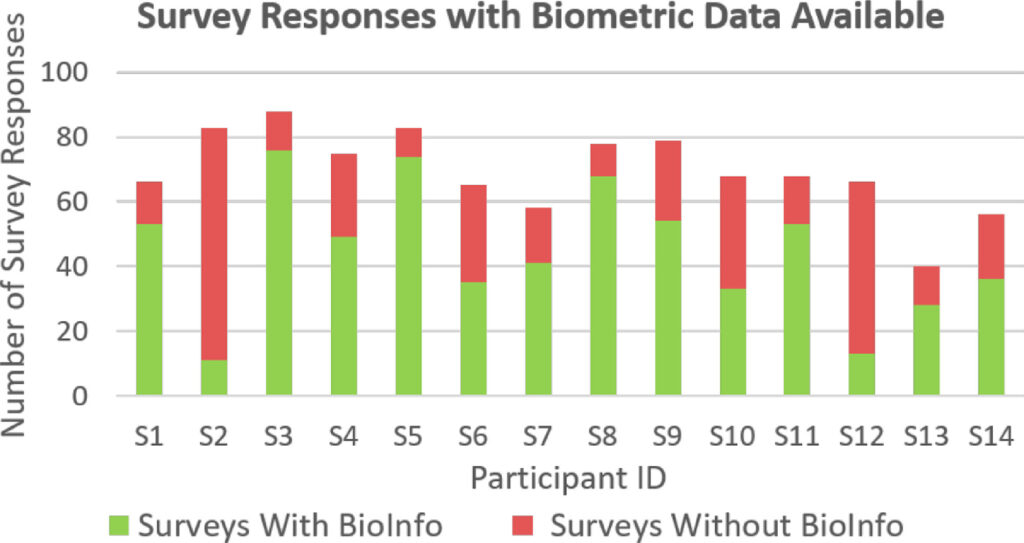Observing and predicting knowledge worker stress, focus and awakeness in the wild
Authors: M. Soto, C. Satterfield, T. Fritz, G. C. Murphy, D. C. Shepherd and N. Kraft.
Knowledge workers face many challenges in the workplace: work is fragmented, disruptions are constant, tasks are complex, and work hours can be long. These challenges can affect knowledge workers’ stress, focus and awakeness, and in turn their interaction with the digital environment, the quality of work performed and their productivity in general. We report on a field study with 14 knowledge workers over an eight-week period in which we investigated, using experience sampling, how the workers experience stress and awakeness over time. During this field study, we also collected biometric data including heart- and skin-related measures, which we then used to investigate if it is possible to predict stress, focus and awakeness, in the moment. We observed and report on various trends in knowledge worker stress and awakeness levels over several weeks, finding that people tend to have certain “baseline” levels for these aspects. Moreover, we found that days with high levels of stress tend to cluster, similarly as the days with low awakeness. We further show that machine learning models can be built from the data of a single minimally invasive device to predict stress, focus, and awakeness. Overall, we found that our models were capable of large improvements in precision and recall in comparison to a random classifier for stress (25.9% increase over random for precision, 4.2% for recall) and awakeness (52.4% increase in precision, 40.8% in recall). The abstract concept of focus proved to be the hardest to predict (26.0% increase in precision, 27.8% decrease in recall).

